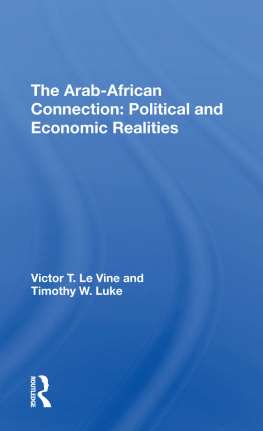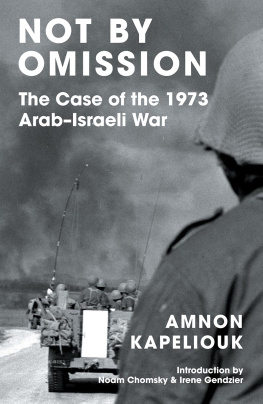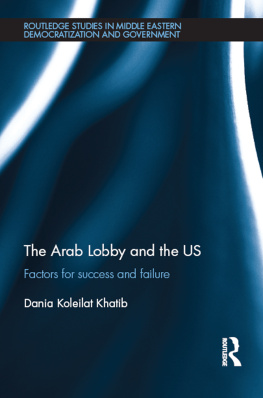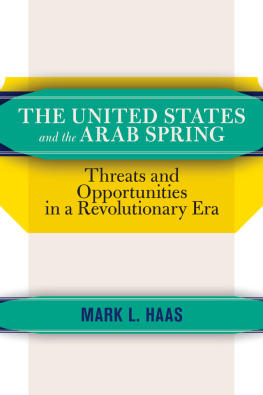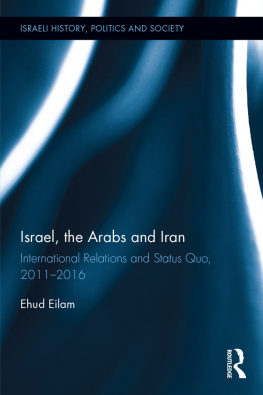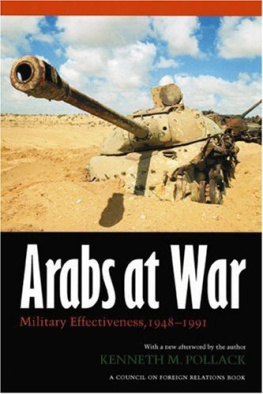The Arab-African Connection
Other Westview Special Studies on Africa
Apartheid and International Organizations, Richard E. Bissell
Ethnicity in Modern Africa, edited by Brian M. du Toit
Zambia's Foreign Policy: Studies in Diplomacy and Dependence, Douglas G. Anglin and Timothy M. Shaw
Botswana: An African Growth Economy, Penelope Hartland-Thunberg
South Africa Into the 1980s, edited by Richard E. Bissell and Chester A. Crocker
Crisis in Zimbabwe, edited by Boniface I. Obichere
Other Westview Special Studies on the Middle East
Oil, the Arab-Israel Dispute, and the Industrial World: Horizons of Crisis, edited by J. C. Hurewitz
The Persian Gulf: An Introduction to Its People, Politics, and Economics, David E. Long
The Middle East: Critical Choices for the United States, edited by Eugene V. Rostow
Yemen: The Politics of the Yemen Arab Republic, Robert W. Stookey
Armed Struggle in Palestine: An Analysis of the Palestinian Guerrilla Movement, Bard O'Neill
The Modern Middle East: A Guide to Research Tools in the Social Sciences, Reeva S. Simon
The United Arab Emirates, Ali Mohammed Khalifa
Economic Growth and Development in Jordan, Michael P. Mazur
Westview Special Studies on Africa/The Middle East
The Arab-African Connection: Political and Economic Realities
Victor T. Le Vine and Timothy W. Luke
Between June 1967 and the end of 1973, most independent Black African states abandoned their neutral position in the Middle East conflict, cut their ties with Israel, and gave full support to the political aims of the Arab states. Since the beginning of 1974, however, and despite attempts by the Arabs to shield their new allies from the adverse effects of the 1973-74 world oil and economic crises, the alliance has begun to fragment as the African states become transformed from partners to clients and dependents of the Arabs.
This study examines the roots of the African conversion, the nature of the evolving relationship between the African and Arab states, and the reasonseconomic and politicalfor the transformation of the alliance. Basic to that transformation, the authors argue, is a fundamental change in the international status and power of the Arab states, a change that has led them to cast their lot with the industrialized "First World" rather than with the poorer, less developed countries.
Victor T. Le Vine is professor of political science at Washington University and was previously professor and head, Department of Political Science, University of Ghana. Timothy W. Luke is a teaching fellow in political science at Washington University.
The Arab-African Connection: Political and Economic Realities
Victor T. Le Vine and Timothy W. Luke
First published 1979 by Westview Press, Inc.
Published 2019 by Routledge
52 Vanderbilt Avenue, New York, NY 10017
2 Park Square, Milton Park, Abingdon, Oxon OX14 4RN
Routledge is an imprint of the Taylor & Francis Group, an informa business
Copyright 1979 Taylor & Francis
All rights reserved. No part of this book may be reprinted or reproduced or utilised in any form or by any electronic, mechanical, or other means, now known or hereafter invented, including photocopying and recording, or in any information storage or retrieval system, without permission in writing from the publishers.
Notice:
Product or corporate names may be trademarks or registered trademarks, and are used only for identification and explanation without intent to infringe.
Library of Congress Cataloging in Publication Data
Le Vine, Victor T.
The Arab-African connection.
(A Westview special study)
1. Arab countriesForeign relationsAfrica. 2. AfricaForeign relationsArab countries. 3. Arab countriesForeign economic relationsAfrica. 4. AfricaForeign economic relationsArab countries. I. Luke, Timothy W., joint author. II. Title.
DS63.2.A4L48 327.6'017-7'4927 78-27362
ISBN 13: 978-0-367-29016-0 (hbk)
Contents
, Michael Samuels
The decade of the 1970s has seen a number of major changes in the world order. The attainment of strategic equivalence between the superpowers has led their basically adversary relationship to expand increasingly into the periphery. The entry of almost fifty newly independent African countries into the world's economic and political mainstream has caused these countries increasingly to look beyond their traditional ties with Western Europe, and outside interests have begun to look toward Africa for economic and political opportunities. The result has been new actors and new areas of activity.
One of the features of the changing world order has been that several previously docile or regionally oriented countries have expanded their vision. This expansion has taken many forms, such as the quest by the developing countries for a New International Economic Order, the active role of the Group of 77, and calls for a New World Information Order. Several advanced developing countries, such as Brazil, South Korea, and Taiwan, have become competitors in markets and with technologies long assumed to be the province of the developed world. But the most significant impact has come from the newly rich oil countries, mostly of the Arab world, who have become an economic class of nations unto themselves.
This impact has come during the decade of the 1970s, most noticeably but not exclusively in the wake of the October War of 1973. The crisis of 1975 showed Arab oil producers that their oil was an important weapon and their wealth an important asset. In a matter of weeks, the Arab oil-producer cartel, the Organization of Arab Petroleum Exporting Countries (OAPEC), became a major actor on the world economic and political scene, overshadowing even its larger and better-known sister group, OPEC, which contained several non-Arab oil producers as well as the members of OAPEC. The global strategies of the superpowers and their allies had to be revised to take account of this new actor, its individual members, and their resources. For their part too, the members of OPEC, most of them Arab countries, found themselves unexpectedly on center stage. They sought to understand their new capabilities and to organize structures through which to operate. New organizations developed; old ones were revitalized.
The global involvement of the Arab oil countries was expanding; but there was also a looking inwardtoward the prospects for economic and social development, and toward the need to protect their new position. This protection was especially needed in a world where, as noted above, the superpower adversary relationship was expanding into the periphery, that is, to the very structure of the Arab oil countries' global and regional relations. The result has been a strengthening of domestic defenses, a search for friends in neighboring regions, especially in Africa, and constant attention toward and concern about the activities and intentions of superpowers and their allies in Africa.
In the years before the October War, Arab countries had successfully campaigned in Africa to end the productive relationships of many countries on that continent with Israel. By 1973, however, many African nations were feeling that the Arabs had failed to compensate them sufficiently for their support. There was grumbling, and there were signs of rapprochement with Israel. But with the war, this disenchantment was quickly forgotten. Thus, while active Arab involvement and attention has been a continuing factor in contemporary African politics and economics, only recently has it begun to help extend global politics into the African continent and into the Indian Ocean region in general.

